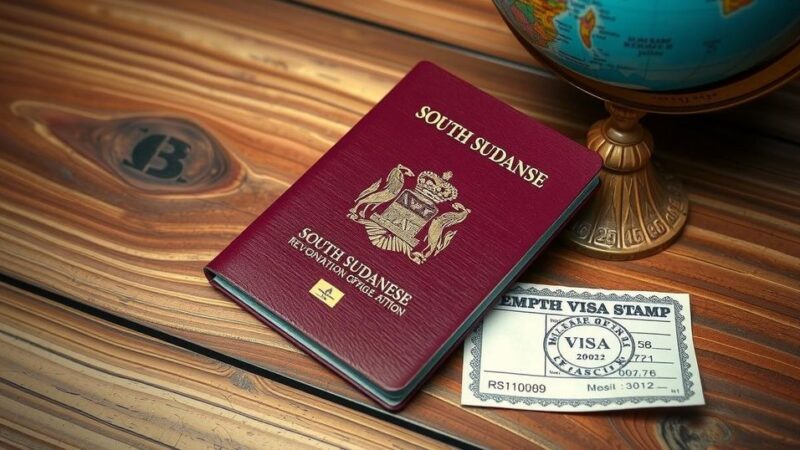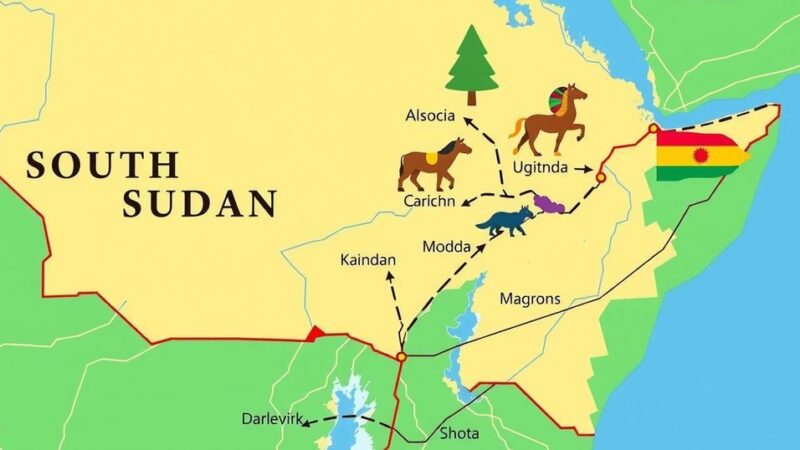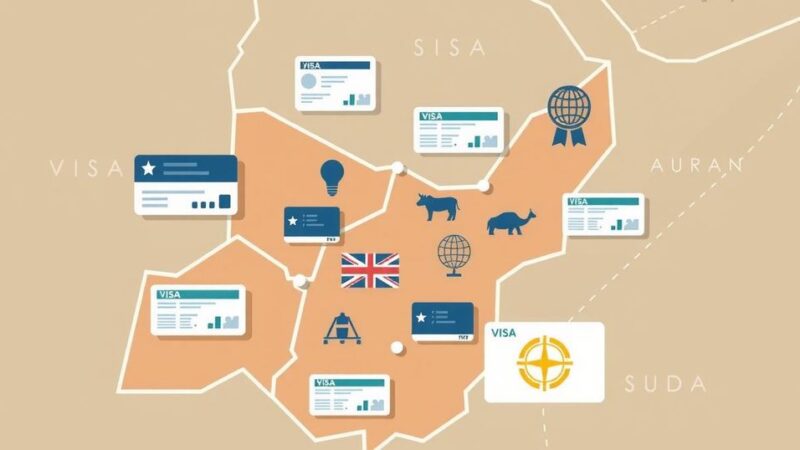An airstrike by South Sudan’s airforce killed at least 19 people in Nasir, raising concerns of renewed conflict after government forces withdrew. The government accuses Riek Machar’s party of collusion with an ethnic militia, while local leaders report severe casualties from the bombing. The incident highlights ongoing tensions amidst regional military developments.
An airstrike conducted by South Sudan’s airforce resulted in the deaths of at least 19 individuals in the eastern town of Nasir, as reported by local residents. This event transpired shortly after government forces retreated from the region amidst violent confrontations with an ethnic militia. The prior clashes involved the national military and the White Army, primarily composed of armed youths from the Nuer ethnic group, raising concerns of a potential resurgence of the 2013-2018 civil war, which had catastrophic humanitarian repercussions.
The South Sudanese government has accused the party of First Vice President Riek Machar, who represents the Nuer, of colluding with the White Army. This group had allied with Machar’s forces during the previous civil conflict, opposing the Dinka troops loyal to President Salva Kiir. Machar’s party has publicly denied any involvement with the White Army. On March 7, amidst the conflict, a UN helicopter faced an assault while attempting an evacuation, resulting in the deaths of approximately 27 soldiers, including a general.
During a press conference, South Sudan’s Information Minister Michael Makuei confirmed the airstrike in Nasir took place on Monday morning. However, local leader Kang Wan indicated that the bombing occurred late on Sunday night. He reported that 15 individuals died instantly, while several others later succumbed to their injuries, with conflicting accounts of the total fatalities. “All of them they got burned, everything got burned,” Wan conveyed during a telephone interview with Reuters.
Medecins Sans Frontieres reported that its hospital in nearby Ulang treated three wounded individuals from Nasir, two of whom were pronounced dead upon arrival due to severe burns. County Commissioner James Gatluak Lew, an ally of Machar, suggested that the air strike was likely a retaliatory measure following the prior helicopter attack.
In related regional developments, Uganda announced the deployment of special forces to South Sudan’s capital, Juba, citing security purposes. While the South Sudanese government refuted claims of Ugandan troop presence, Makuei acknowledged that some Ugandan military units are supporting the national army as needed.
The recent airstrike in Nasir underscores the fragile security situation in South Sudan, particularly following tensions between government forces and ethnic militias. The conflict could exacerbate humanitarian crises, reminiscent of past civil wars. The government’s allegations against Riek Machar’s party, coupled with regional military developments, illustrate growing complexities in the ongoing power dynamics within South Sudan. It is imperative for all involved parties to prioritize dialogue and stability to prevent further escalation.
Original Source: bdnews24.com






